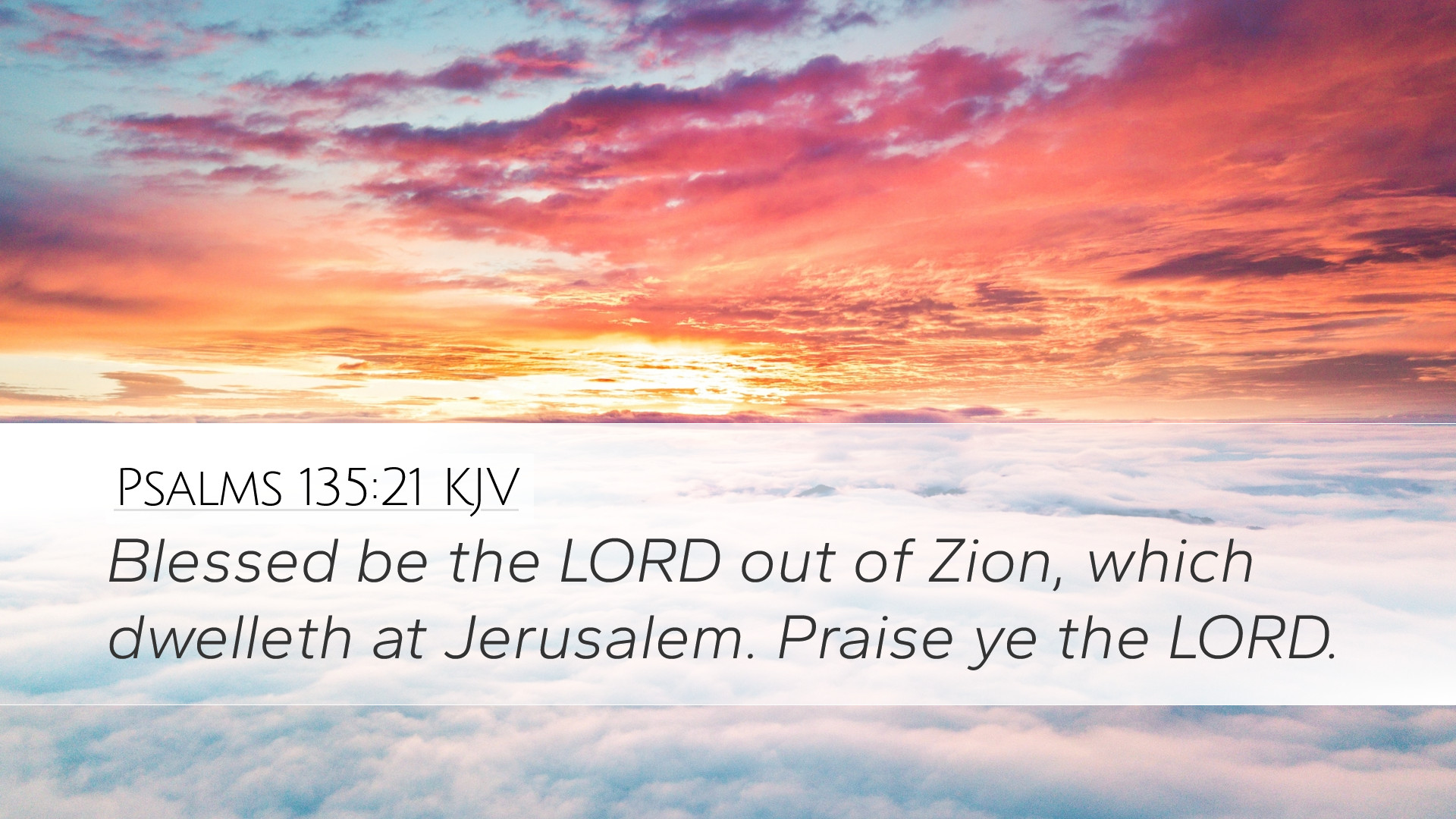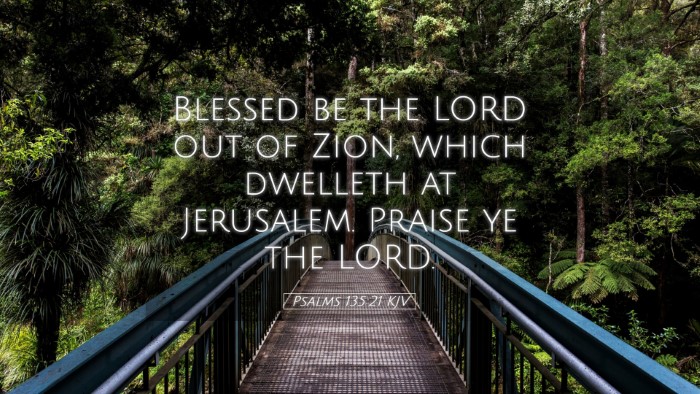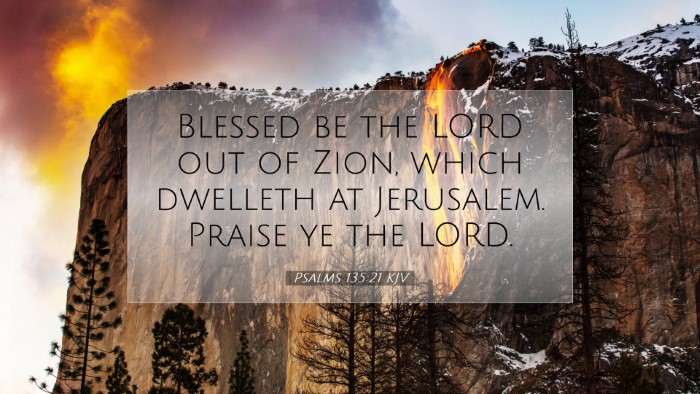Bible Commentary on Psalms 135:21
Bible Verse: Psalms 135:21 - "Blessed be the Lord out of Zion, which dwelleth at Jerusalem. Praise ye the Lord."
Introduction
Psalms 135 is a hymn of praise that emphasizes the glory, sovereignty, and goodness of the Lord. Verse 21 concludes the psalm with a focus on God’s dwelling place, affirming Zion (Jerusalem) as a significant site of divine presence and worship. This commentary synthesizes insights from renowned public domain commentaries to unpack the theological significance of this verse for pastors, scholars, and students.
Theological Significance
In this verse, we see the declaration of God’s blessedness and the call to praise. The psalmist begins with a beatitude, acknowledging the Lord's exaltation while simultaneously directing praise towards Him. This duality connotes a deep understanding of God’s relationship with His people and His chosen dwelling place.
1. Divine Presence in Zion
Matthew Henry notes that the phrase "which dwelleth at Jerusalem" emphasizes God's special presence among His people, highlighting Zion as a physical and spiritual center. Jerusalem represents not just a geographical location but a spiritual hub where God’s covenant community can meet with Him. This notion echoes throughout the Psalms, where Zion is synonymous with the temple and worship.
Albert Barnes asserts the importance of Zion in the context of Israel's worship, suggesting that the dwelling of God here denotes His favor and blessing upon the nation. The psalmist’s invocation shows reverence for God’s choice of Jerusalem and recognizes it as essential to the worship life of the Israelites.
2. The Nature of Praise
The command to "Praise ye the Lord" is a fitting conclusion to this psalm. Adam Clarke notes that this phrase encapsulates the essence of Hebrew worship. The act of praising is not simply a reaction, but a mandated expression of our recognition of God’s greatness. This verse invites the faithful to engage actively in worship, a response to God’s attributes.
Furthermore, Matthew Henry emphasizes that praise should emanate from the heart, rooted in understanding God’s blessings. Thus, praising God out of Zion becomes not merely an external activity but an internal acknowledgment of God's vast works and nature.
Historical Context
Examining Psalms 135 within its historical context reveals much about its meaning. The psalm likely emerged during a time of national reflection wherein the Israelites faced threats from surrounding nations. During such tumultuous times, the assurance of God's presence in Zion would have been particularly comforting. Barnes reminds us that remembering God’s past deliverances can embolden the faithful to trust in His future guidance.
3. Zion as a Symbol of Hope
For the psalmist, Zion symbolized hope and security. Zion’s portrayal as God's dwelling place encapsulates a broader theme in the Psalms - the steadfast faithfulness of God to His people. The assurance expressed in Psalms 135:21 communicates that, despite circumstances, God is in control and present.
Clarke points out the duality of the blessing—coming from God and directed back to Him through worship. This reciprocal relationship is a hallmark of the covenant, where God's presence implies His provision, protection, and the call to respond in praise.
Contemporary Application
For modern readers, Psalms 135:21 serves as a reminder of the importance of worshiping together in community, especially in designated spaces that honor God. Just as ancient Israel looked to Jerusalem and Zion as a physical beacon of God's presence, contemporary congregations can find similar meaning in the church as a place of divine encounter.
Additionally, this verse encourages believers to remind themselves collectively of God's blessings, inspiring an attitude of gratitude and worship within the faith community. As noted by Henry, the act of praise should be lively and heartfelt, echoing the sentiment of the psalmist who rejoices not only in what God has done but in who He is.
Conclusion
In grasping the profound truths embedded in Psalms 135:21, one can see its layered meanings that resonate throughout biblical history and into the life of the church today. The emphasis on God’s dwelling among His people and the call to praise serves both as a reflection of ancient practices and a model for contemporary worship life. For pastors, students, and theologians alike, the verse encourages a deepened relationship with God, underscoring the significance of worship as a vital response to His enduring presence and blessings.


